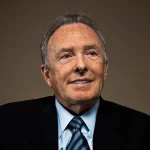- Home
- Billionaires
- Investing Newsletters
- 193CC 1000
- Article Layout 2
- Article Layout 3
- Article Layout 4
- Article Layout 5
- Article Layout 6
- Article Layout 7
- Article Layout 8
- Article Layout 9
- Article Layout 10
- Article Layout 11
- Article Layout 12
- Article Layout 13
- Article Layout 14
- Article Sidebar
- Post Format
- pages
- Archive Layouts
- Post Gallery
- Post Video Background
- Post Review
- Sponsored Post
- Leadership
- Business
- Money
- Small Business
- Innovation
- Shop
Recent Posts
John Menard, Jr.: A Self-Made Retail Tycoon

John Menard, Jr. is a name that resonates strongly within the retail and home improvement industries. As the founder and owner of Menards, one of the largest home improvement store chains in the United States, Menard has built a vast empire that spans across hundreds of stores and has made him one of the wealthiest and most influential figures in the American retail sector. His story is one of grit, determination, and a keen understanding of the market, which has allowed him to maintain control over his company while growing it into a household name.
Born on January 22, 1940, in Eau Claire, Wisconsin, John Menard, Jr. was raised in a family that valued hard work and entrepreneurial spirit. His father, who worked as an engineer, instilled in him a strong sense of discipline and a work ethic that would guide him throughout his life. Menard’s journey into the world of business began after he graduated from the University of Wisconsin-Madison with a degree in civil engineering. However, rather than follow the traditional path of engineering work, Menard chose to venture into the world of business and construction. His interest in home improvement and retail was sparked during his early career, as he realized there was a gap in the market for a discount home improvement store that offered high-quality products at affordable prices.
In 1959, Menard opened his first home improvement store in Eau Claire, Wisconsin. The store was small but marked the beginning of what would eventually become Menards, a chain of home improvement stores that would grow to rival the likes of Home Depot and Lowe’s. Menard’s vision was simple: to create a retail business that focused on customer service, offered a broad range of products, and sold them at competitive prices. This combination of quality, customer service, and affordability became the foundation for Menard’s success.
As Menard expanded his business, he became known for his hands-on approach to management. Unlike many other business owners, Menard was deeply involved in every aspect of his company, from selecting the products to managing store operations and overseeing the construction of new locations. His approach was highly unorthodox, but it proved to be incredibly successful. By the early 1980s, Menards had expanded significantly, opening multiple locations throughout Wisconsin and into neighboring states. Menard’s ability to adapt to changing market conditions and his focus on providing a broad range of home improvement products at competitive prices allowed him to quickly capture a large share of the market.
Despite the increasing competition in the home improvement industry, Menard’s business continued to grow at an impressive rate. His ability to stay ahead of industry trends and anticipate consumer needs was a key factor in Menard’s success. For example, while many of Menard’s competitors were focused on large, warehouse-style stores, Menard recognized the value of a more customer-friendly approach. He made sure his stores were well-organized and offered a personalized shopping experience that made customers feel comfortable and confident in their purchases.
One of Menard’s key strategies was the development of his own private label brands. By offering a range of products under the Menards brand, he was able to ensure quality control while also offering customers lower prices than those of national brands. This move not only increased Menard’s profits but also built customer loyalty, as shoppers came to trust the Menards brand for a variety of home improvement products, from tools and lumber to plumbing and electrical supplies.
As Menards grew, so did its influence in the retail industry. By the 1990s, Menards had become one of the largest home improvement chains in the country. Menard’s ability to maintain a balance between rapid expansion and quality service was crucial to the company’s continued success. While other retailers focused on large-scale national expansion, Menard stayed true to his roots, carefully choosing locations that made sense for his business model and ensuring that each new store met the high standards that had made Menards successful.
Menard’s business acumen and commitment to quality paid off handsomely. Today, Menards operates over 300 stores in 14 states and is one of the largest privately owned companies in the United States. Despite its size and success, Menards has remained a family-run business, with Menard retaining full ownership and control. His reluctance to go public has allowed him to maintain autonomy over his company, avoiding the pressures and scrutiny that often accompany publicly traded companies. This independence has allowed Menard to make decisions based on long-term strategy rather than short-term profits, which has contributed to the company’s continued growth.
Throughout his career, Menard has also been a philanthropist, contributing to various charitable causes and community projects. His generosity is particularly evident in his support for education, as Menard has donated millions of dollars to educational institutions, particularly in his home state of Wisconsin. Menard’s commitment to giving back to the community is a testament to his belief in the importance of social responsibility and helping others succeed.
John Menard, Jr. has built a legacy in the retail and home improvement industries that few can match. His unwavering commitment to quality, customer service, and innovation has made Menards a powerhouse in the American retail landscape. Despite the rise of giant competitors like Home Depot and Lowe’s, Menard has managed to maintain his position as one of the most successful and influential figures in the industry. His hands-on approach to business, his focus on long-term growth, and his ability to adapt to changing market conditions have ensured that Menards remains a leading force in the home improvement sector. As Menard continues to lead his company into the future, his legacy as one of America’s greatest self-made business tycoons is secure.
- American business tycoons
- American entrepreneurs
- American retail
- business autonomy
- business control
- Business Empire
- Business Expansion
- Business Innovation
- Business Leadership
- business model
- business ownership
- business strategy
- civil engineering
- construction supplies
- Consumer Needs
- Customer loyalty
- customer service
- education donations
- Family Business
- Home improvement
- home improvement chain
- home improvement market
- home improvement products
- home improvement retail
- Industry Trends
- John Menard Jr
- Menard family
- Menards
- Menards brand
- Menards growth
- Menards philanthropy
- Menards stores
- Midwestern business
- national expansion
- national retail market
- private company
- private label brands
- private ownership
- product selection
- retail chain
- retail competition
- retail industry
- Retail Management
- retail strategy
- retail success
- retail success story
- retail tycoon
- Social Responsibility
- store management
- strategic planning
- Wisconsin businesses
- Wisconsin entrepreneur
Recent Posts
Categories
- 193cc Digital Assets2
- 5G1
- Aerospace & Defense46
- AI37
- Arts3
- Banking & Insurance11
- Big Data3
- Billionaires449
- Boats & Planes1
- Business328
- Careers13
- Cars & Bikes76
- CEO Network1
- CFO Network17
- CHRO Network1
- CIO Network1
- Cloud10
- CMO Network18
- Commercial Real Estate7
- Consultant1
- Consumer Tech180
- CxO1
- Cybersecurity68
- Dining1
- Diversity, Equity & Inclusion4
- Education7
- Energy8
- Enterprise Tech29
- Events11
- Fintech1
- Food & Drink2
- Franchises1
- Freelance1
- Future Of Work2
- Games141
- GIG1
- Healthcare78
- Hollywood & Entertainment186
- Houses1
- Innovation42
- Investing2
- Investing Newsletters4
- Leadership65
- Lifestyle11
- Manufacturing1
- Markets20
- Media193
- Mobile phone1
- Money13
- Personal Finance2
- Policy567
- Real Estate1
- Research6
- Retail1
- Retirement1
- Small Business1
- SportsMoney33
- Style & Beauty1
- Success Income1
- Taxes2
- Travel10
- Uncategorized8
- Vices1
- Watches & Jewelry2
- world's billionaires418
Related Articles
Sky Xu: The Visionary Behind Shein’s Fast Fashion Empire
Sky Xu, the cofounder and CEO of Shein, has made an indelible...
By 193cc World's BillionairesDecember 22, 2024The Rise and Resilience of Suleiman Kerimov: A Billionaire’s Journey Through Business, Politics, and Controversy
Suleiman Kerimov, a prominent Russian billionaire and influential political figure, has made...
By 193cc World's BillionairesDecember 22, 2024Marcel Herrmann Telles: From Brazil to Global Business Empire
Marcel Herrmann Telles is a name that resonates in the world of...
By 193cc World's BillionairesDecember 22, 2024Robert Kraft: From Paper Fortune to Sports Empire
Robert Kraft is a name that resonates with success in both the...
By 193cc World's BillionairesDecember 22, 2024















Leave a comment